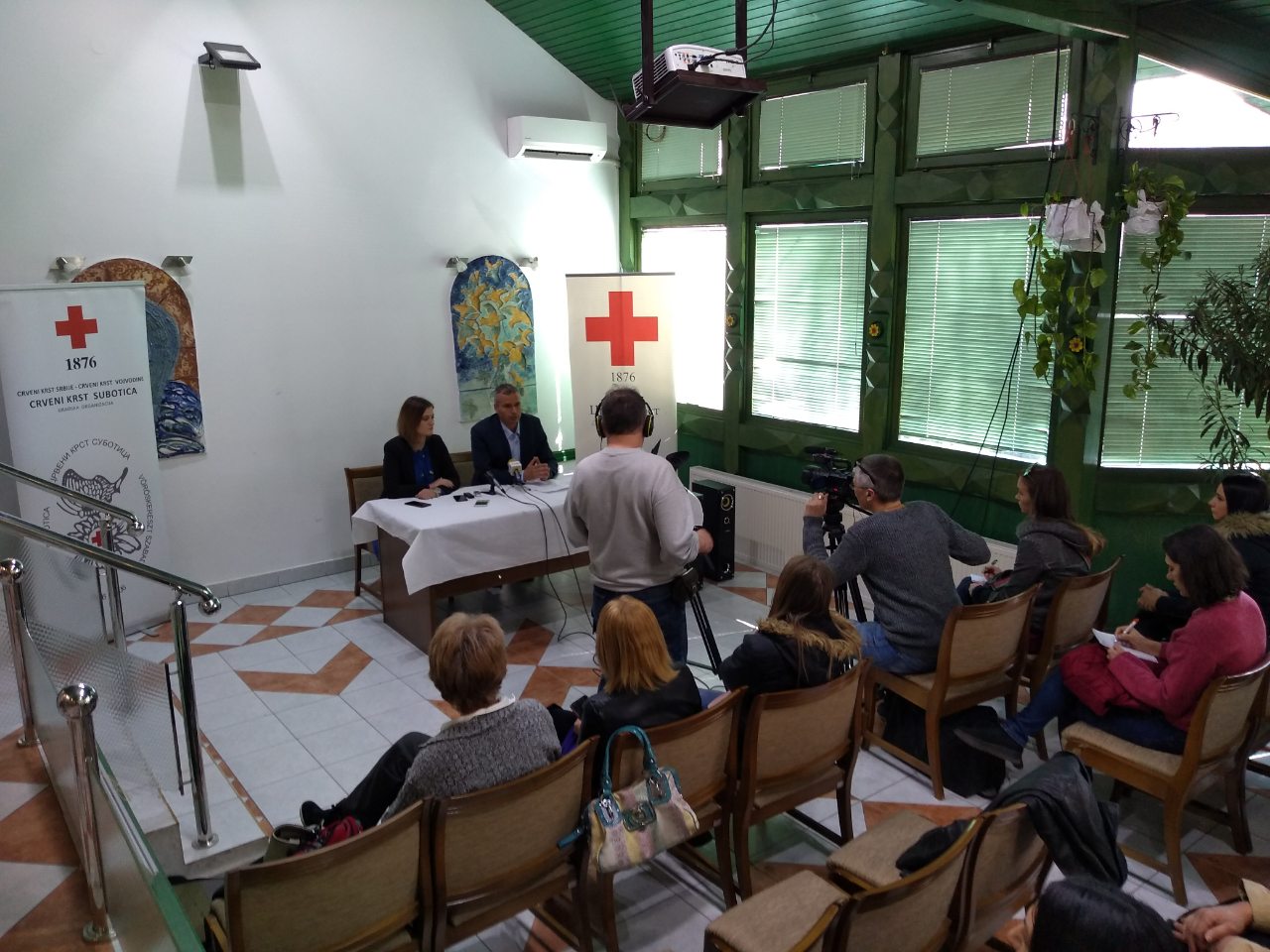Hotline: +381 61 63 84 071
Presentation of the Economic empowerment program for human trafficking victims

Photograph: Red Cross Subotica
Presentation of the Economic empowerment program for human trafficking victims
As a part of presentation of the licensed service of assisted housing led by Citizens’ Association Atina, Economic empowerment program was presented, which has been implemented by the Citizens’ Association Atina. Assisted housing is the first licensed service for human trafficking victims in Serbia, and it is an outcome of a long-standing effort of Atina’s team to have this service recognized by the government as necessary and unavoidable in providing support to women who survived this form of violence. Assisted housing service is comprised of a set of activities aimed at providing economic empowerment, independence, reintegration, inclusion in community and improving quality of life of human trafficking victims through maintaining and developing their potential. Inseparably linked assisted housing service and economic empowerment program, are an escape strategy for many women who are human trafficking victims in Serbia.
So far, Economic empowerment program has been presented to professionals from Centers for Social Work, as well as to members of Local teams for preventing and combating human trafficking in Sremska Mitrovica and Subotica.
Economic empowerment program has been implemented through acquiring new knowledge and skills, finding job opportunities, mentoring program and teaming up with socially responsible companies. Through this program: - chances of repeated violence is decreased – basis for economic independence is achieved – a person’s dignity is revived; these women are more competitive on a labor market. Basic steps of Economic empowerment program are the following: psychological empowerment, trainings for acquiring basic knowledge, training for acquiring specific knowledge and skills, practical training in Bagel Bejgl shop, as well as in other firms Atina has long-standing cooperation with, signed memorandums of understanding, etc. Economic empowerment program has multiple benefits because it positively affects lives of these women, broader social community, Bagel Bejgl shop and organization development, as well as improvement of social entrepreneurship in general.
Economic empowerment is one of the key elements in recovery and reintegration of women survivors of human trafficking, because it certifies that these women can regain control, have independence, and decrease risks of ending up in exploitation situation again. Without economic empowerment we cannot talk about any long-term fight against trafficking or hope the victims will not remain marginalized, and perhaps become victims of some other form of violence and exploitation. It is particularly important to raise awareness of the significance of economic empowerment, and to implement it in local environments, since there are less support and protection services in place, and victims are exposed to additional risk of discrimination and marginalization. We have to fight against human trafficking and fight for victims’ rights anytime and anywhere, and that is the task of Local teams for combating human trafficking, which is why the presentation of economic empowerment program to their members even more needed.
Economic empowerment program has been supported by the United Nations Entity for Gender Equality and the Empowerment of Women - UN Women within the project “Key steps toward gender equality” funded by the EU. The project is part of the initiative for supporting women entrepreneurship, women in rural areas, decreasing labor market and employment discrimination, encouraging dialogue on the importance of economic empowerment of women and exchange of knowledge and information among women entrepreneurs.
This text was produced in the framework of the project "Support to Priority Actions for Gender Equality in Serbia", implemented by the United Nations Entity for Gender Equality and the Empowerment of Women (UN Women) with funding from the European Union. The views contained in the text are those of the authors and do not necessarily represent the views of UN Women, the United Nations or any of its affiliated organizations. The project is part of the initiative for supporting women entrepreneurship, women in rural areas, decreasing labor market and employment discrimination, encouraging dialogue on the importance of economic empowerment of women and exchange of knowledge and information among women entrepreneurs.













 FACEBOOK
FACEBOOK TWITTER
TWITTER YOUTUBE
YOUTUBE